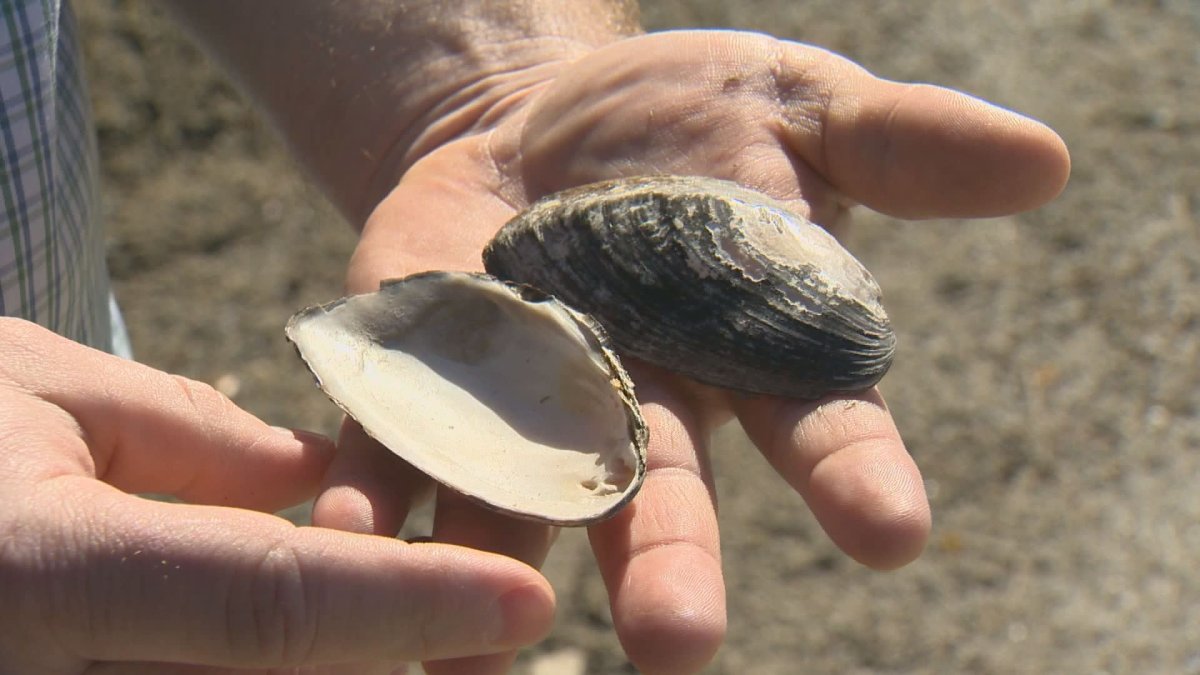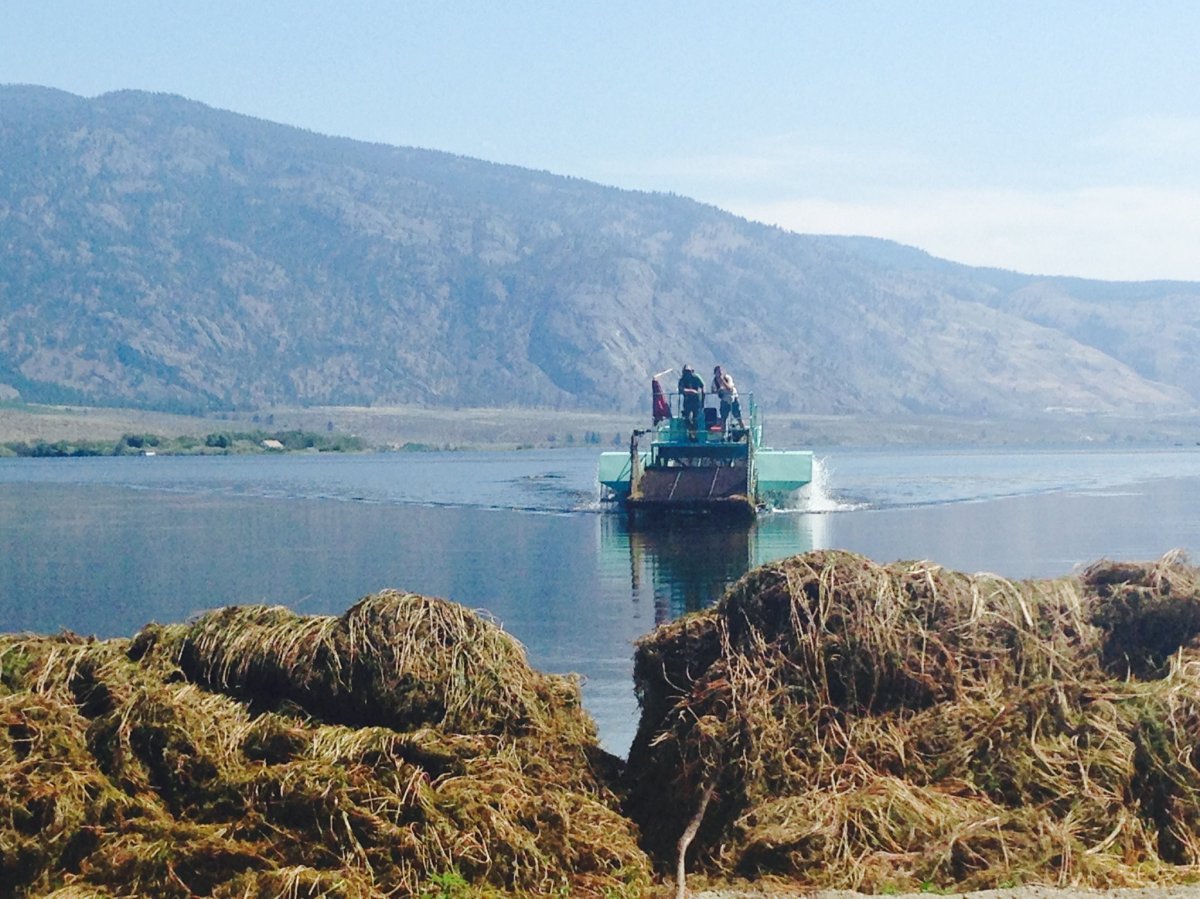A pesky invasive weed could flourish in Okanagan lakes this summer as provincial and federal governments place restrictions on milfoil control in an attempt to save a species of mussel.

The Okanagan Basin Water Board (OBWB) spends $825,000 annually to remove invasive Eurasian milfoil from five large lakes, including Okanagan, Kalamalka, Wood, Skaha and Osoyoos.
OBWB says the most effective way of removing milfoil is by rototilling — de-rooting milfoil from the bottom of the lake — to reduce its stem density by 80 to 97 per cent.
But rototilling is now prohibited in several areas under provincial regulations.
WATCH (March 2019): More weeds at Okanagan beaches could be the tradeoff for protecting endangered mussels

That’s because provincial and federal officials want to protect a species of freshwater mussel known as the Rocky Mountain ridged mussel.
The mussel is currently listed as “at-risk” under the Species at Risk Act but is now being considered for up-listing to “endangered,” which would greatly increase regulatory requirements for the milfoil control program, according to the OBWB.
Anna Warwick Sears, executive director of the OBWB, has written to federal Minister of Fisheries and Oceans Jonathan Wilkinson and B.C. Minister of Forests, Lands, Natural Resource Operations and Rural Development Doug Donaldson.
The OBWB is asking them to grant an authorization for the milfoil control program to continue.
The letter states that there is not enough evidence that the mussel could be endangered by rototilling and notes that an updated study looking at the socio-economic impact of terminating the program has not been completed.
WATCH (October 2017): Vaseux Lake residents demand timely removal of milfoil

It says a provincially commissioned report in 1991 found that ending the practice would lead to a projected economic decline of $85 million in annual tourism revenue, $360 million in lost property value and over 1,700 job losses in the Okanagan alone.
“These decisions have the potential to return some areas of Okanagan lakes to the aquatic conditions of the 1970s, with uncontrolled milfoil growth promoting poor water quality and toxic algae blooms, anoxic lake-bottom conditions, increased nutrient release into the water and unusable swimming areas,” Sears says in the letter.
The OBWB says untreated areas near public beaches could degrade the beaches for swimming and recreation.
The board has also sent letters to municipal governments asking them to support its request to the ministers to authorize the milfoil de-rooting program to continue.
Osoyoos town council will review the request at Monday’s regular council meeting.
- Enter at your own risk: New home security camera aims paintballs at intruders
- High benzene levels detected near Ontario First Nation for weeks, residents report sickness
- Boston Dynamics unveils ‘creepy’ new fully electric humanoid robot
- Ontario First Nation calls for chemical plant to be shut down amid ‘dangerously high’ benzene levels





Comments